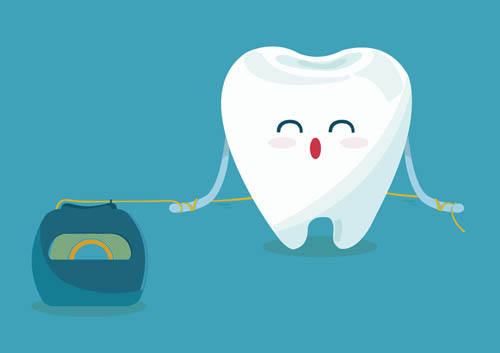Dental Veneers
March 20th, 2025

If you want to fix staining, large gaps, fillings, chipped teeth, or the overall shape of your teeth, this may be the perfect option for you. Many of our patients opted for veneers and have never been more confident in their smile!
Dental veneers are made from long-lasting porcelain materials which cover the front and biting ends of each tooth. At your appointment, you can choose the shade of veneers to brighten up your smile. They are usually placed on the anterior, or front teeth, where the chewing forces are not as hard as in the back. Placing the veneers is easy, and the best part is: It requires only two appointments!
During the first appointment, we’ll take an impressions of your teeth. Then we send them to the lab to make your veneers. Veneers are fairly conservative in preparation because they require a small amount of space to be created on the front, bottom, and sides of each tooth for a natural appearance. You will leave the office with temporary veneers in place for a week or two while the permanent veneers are being made.
Your veneers will be placed during the second appointment, and you won’t believe the difference in your smile! If you’re interested in learning more, give Drs. Peter Vogel, Vijal Vadecha a call at our Anthem office today!
How do I know when I have a cavity?
March 13th, 2025

Drs. Peter Vogel, Vijal Vadecha and our team at Daisy Mountain Dentistry frequently field questions about cavities and what causes them. Patients will typically ask, “I brush twice a day and floss regularly, as well as rinse with hydrogen peroxide, so a cavity is unlikely, right?”
Not quite.
When cavities, also known as caries, are in their initial stages, people often will feel no symptoms, and they won’t experience any pain or discomfort. It’s not until the tooth decay has reached a certain level that patients begin to notice the signs. If you are experiencing any of the following symptoms, you may want to consider scheduling an appointment with Drs. Peter Vogel, Vijal Vadecha as soon as possible:
- Dull or sharp toothache
- Tooth sensitivity or mild to sharp pain when eating or drinking something sweet, hot, or cold
- Persistent bad breath or a bad taste in the mouth
- The presence of a sticky, tarry feeling when biting down
- Puss or discharge around a tooth, especially when pressing on your gums
- Visible holes or discoloration in your teeth (usually black or brown)
Cavities can happen at any time, to anyone, no matter how old you are. Routine dental care is important to prevent cavities or the onset of tooth decay, so it is important to visit Drs. Peter Vogel, Vijal Vadecha and our team at Daisy Mountain Dentistry for regular cleanings. If you are overdue for a checkup or think you may have a cavity, please give us a call at Anthem office to schedule an appointment.
Proper Flossing Techniques
March 6th, 2025

Of all the dental hygiene techniques you can use at home to promote clean teeth and good oral health, flossing is likely to be the one that troubles most people. It can be viewed as confusing and time-consuming, but when you learn how to floss your teeth correctly, you’ll find it’s easy to do on a daily basis.
Proper flossing techniques are vital to the health of your teeth and gums. These tips will help you with the correct flossing procedures. Likewise, Drs. Peter Vogel, Vijal Vadecha and our team can also help you learn how to floss effectively and efficiently.
Steps to Flossing Your Teeth Properly
- Choosing Dental Floss. You can find dental floss in various flavors, as well as waxed or unwaxed. If the floss you use seems to get stuck between your teeth, switch to waxed to make it easier.
- Flossing “Helpers.” Beginner flossers who have trouble coordinating the floss and the movements of their hands can use a floss holder to help them get in and around teeth.
- Preparing the Floss. Cut an 18-inch piece of floss to use for flossing a few teeth. This allows you to make progress before you must stop and cut another piece of floss.
- How to Hold It. Wind the ends around your middle fingers. Hold the floss taut, pinching each side with your thumbs and index fingers. Leave a couple inches free in the middle.
- The Process of Flossing. Use your index fingers to guide the floss toward your gum line. Bring it down between the teeth with a zigzag motion. Hold the floss in a C-shape around the tooth, and move it up and down along the side.
- Where to Floss. Use a clean portion of the floss to clean around and in between each tooth. Don’t forget about the molars in the back of your mouth, too!
Flossing: A Vital Part of Oral Care
Periodontal disease begins at the gum line; this is where flossing comes in. Regular flossing helps you remove plaque from the gum line and between your teeth to avoid gum disease. In conjunction with daily brushing and twice-a-year visits to Daisy Mountain Dentistry, floss each day to maintain good oral hygiene and overall health. Gum disease can have an impact on your general health, but it doesn't have to. This easy-to-prevent condition can be avoided with regular visits to our Anthem office and daily flossing. Allow our team to partner with you in maintaining a bright, shiny smile and good oral health.
What should I do if my child has a toothache?
February 27th, 2025

Toothaches in children can be tricky ordeals that cause distress for both the child and the parent. You may feel helpless and frustrated because you cannot pinpoint the location of the pain. It is so hard to see your little one experience discomfort and feel like there is nothing you can do about it. But there are ways you can help. Try these tips the next time your child has a toothache.
Zero in on the Painful Area
The first thing you need to do is find out where the pain is coming from. If your child is old enough, ask him or her to point to the painful area. In younger children, look for swelling and redness on the gums and cheek, dental caries (discolorations on the tooth), or broken teeth. Try to get as close to the location of the pain as possible so you can determine an effective course of action to relieve it.
Try to Find the Cause
Not all toothaches are actually toothaches. A child can bite his or her tongue or cheek, have sore gums, or develop ulcers in the mouth. Teeth that are coming in can also be quite painful. If a tooth is discolored, broken, loose, or has spots that are either darker or lighter than the rest of the tooth, those could be causes of pain.
Five-Step Approach to Dental Pain Relief
- Floss. Help your child floss to remove any food particles that may be wedged between the teeth and could be causing pain.
- Rinse with warm salt water. Use a warm salt-water solution and have your child rinse well by swishing or holding the salt water over the painful area.
- Use a cold compress. This can relieve pain and swelling. If there is no swelling, you can try it anyway to subdue the pain. Try it on for about 15 minutes, then off for 20.
- Give the child ibuprofen or acetaminophen. Use the appropriate dosage for your child’s age and administer it regularly as directed.
- See Drs. Peter Vogel, Vijal Vadecha. If you determine that the tooth or gum is damaged, or if the pain simply cannot be relieved, call our Anthem office.
If your child is experiencing throbbing pain, fatigue, or fever, you should call your pediatrician as soon as possible. If your child is experiencing mouth pain accompanied by trouble breathing or swallowing, it can indicate a more serious situation and you should take your son or daughter to the emergency room.
Most mouth pain in children can be remedied with the simple steps here. The important thing is that you remain calm, no matter what. You child is taking cues from you and if you panic, he or she will panic.


